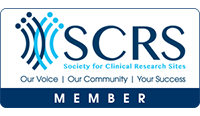There are many people who are experiencing some form of depression. Most of these people are on therapy or medication. However, when a person’s symptoms do not improve with the treatment, this is referred to as treatment-resistant depression.
Depression is a mental disorder that can impact a person’s life in many aspects. When someone has depression, it can affect one’s feelings, relationships, and beliefs. There are other types of depression such as clinical depression and major depressive disorder however, treatment-resistant depression symptoms are much harder to treat. As treatment-resistant depression can be hard to manage, many health professionals will use specialized therapies and adjust medications and treatment to find what fits best for each patient.
Some symptoms one would see with treatment-resistant depression are:
- Continuously feeling sad, emptiness, worthlessness, or guilt
- Suicidal thoughts or behavior
- Struggle to make decisions
- Short tempered or irritability
- Fatigue, insomnia, along with many other symptoms
In many cases, some people can have these symptoms for weeks while others experience them on a come and go basis. As there are no definite answers as to why one develops depression there are factors and triggers to what may bring on depression. It is believed that a person’s genes could be a factor to treatment-resistant depression. Serotonin, which is a chemical that regulates mood and well-being could be genetically low. Certain medical conditions such as cancer, psychiatric disorders, and heart disease can all contribute to one having depression. Other known factors and triggers are severe stress, drug and alcohol abuse, unexpected life changes, and improper treatment. One may also develop treatment-resistant depression by not staying on the medication prescribed for depression or skipping doses.
If you believe to have depression, the first step to taking control over the illness would be to reach out to your physician. Depending on how severe the condition is you may be referred to a mental health specialist. The mental health professional will gather all symptoms, triggers, and factors to determine the correct path for your treatment. Most people with depression will take antidepressants which can assist the levels of serotonin, norepinephrine, dopamine, and may other neurotransmitters. However, in cases such as treatment-resistant depression these antidepressants do not always work and may need to be adjusted. This may mean someone needs to give the antidepressant more time, possibly a higher dosage, use more than one treatment or switch to another class of antidepressants. The most important tool for aiding in treatment is following the recommended instructions from your mental health professional.
Forms of therapy may also benefit someone with depression. This can help by assisting someone with coping with the symptoms they are having. If neither antidepressant nor therapy is working the next step may be to try a specialized procedure. This is usually a last resort option but depending on the severity may be used. These include electroconvulsive therapy, repetitive transcranial magnetic stimulation, vagus nerve stimulation or ketamine. When overcome with depression, there may be some people who try to cope with their own depression, and this could work for some depending on the steps taken. If finding that you are unable to manage your symptoms alone do not leave it untreated.
If you or a loved one suffer from depression and are interested in joining a clinical trial, visit our studies page to see if you may qualify to participate.



